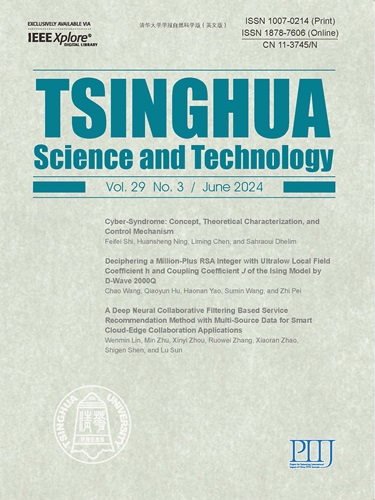Output Type Guided Random Test Case Generation for String Validation Routines
IF 3.5
1区 计算机科学
Q1 Multidisciplinary
引用次数: 0
Abstract
String validation routines have been widely used in many real-world applications, such as email validation and postcode validation. String test cases are adopted to test these validation routines, to identify potential defects and security risks. Random Testing (RT) is a well-known testing approach to randomly generate string test cases from the input domain (i.e., the set of all possible test inputs), which is simple to implement at a low cost. However, its testing effectiveness may be unsatisfactory for string validation routines. The main reason for this is that RT may have a high probability to generate invalid rather than valid string test cases, due to its randomness property. This research proposes a new RT approach based on the output types (i.e., valid and invalid strings) for string validation routines, namely Output-type-guided Random Testing (RT-O), which attempts to randomly generate both valid and invalid string test cases with a certain probability. This research performed an empirical study involving several real-world string validation routines collected from ten Java open-source projects, to investigate and compare testing performances of RT-O against the previous two widely-used RT methods. The results show that the generated string test cases by RT-O outperform test cases generated by other RT methods.字符串验证例程的输出类型引导随机测试用例生成
字符串验证例程已广泛用于许多实际应用程序中,例如电子邮件验证和邮政编码验证。采用字符串测试用例来测试这些验证例程,以识别潜在的缺陷和安全风险。随机测试(RT)是一种众所周知的测试方法,它从输入域(即所有可能的测试输入的集合)随机生成字符串测试用例,它实现简单,成本低。然而,对于字符串验证例程,它的测试效率可能不令人满意。这样做的主要原因是,由于其随机性,RT可能有很高的概率生成无效而不是有效的字符串测试用例。本研究提出了一种基于字符串验证例程输出类型(即有效字符串和无效字符串)的RT方法,即output -type-guided Random Testing (RT- o),该方法尝试以一定概率随机生成有效和无效字符串测试用例。本研究进行了一项实证研究,涉及从十个Java开源项目中收集的几个实际字符串验证例程,以调查和比较RT- o与前两种广泛使用的RT方法的测试性能。结果表明,RT- o生成的字符串测试用例优于其他RT方法生成的测试用例。
本文章由计算机程序翻译,如有差异,请以英文原文为准。
求助全文
约1分钟内获得全文
求助全文
来源期刊

Tsinghua Science and Technology
COMPUTER SCIENCE, INFORMATION SYSTEMSCOMPU-COMPUTER SCIENCE, SOFTWARE ENGINEERING
CiteScore
10.20
自引率
10.60%
发文量
2340
期刊介绍:
Tsinghua Science and Technology (Tsinghua Sci Technol) started publication in 1996. It is an international academic journal sponsored by Tsinghua University and is published bimonthly. This journal aims at presenting the up-to-date scientific achievements in computer science, electronic engineering, and other IT fields. Contributions all over the world are welcome.
 求助内容:
求助内容: 应助结果提醒方式:
应助结果提醒方式:


